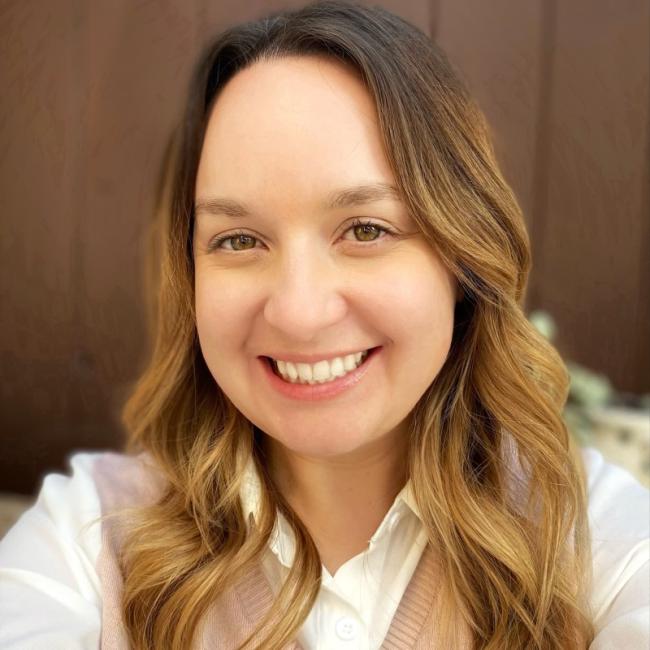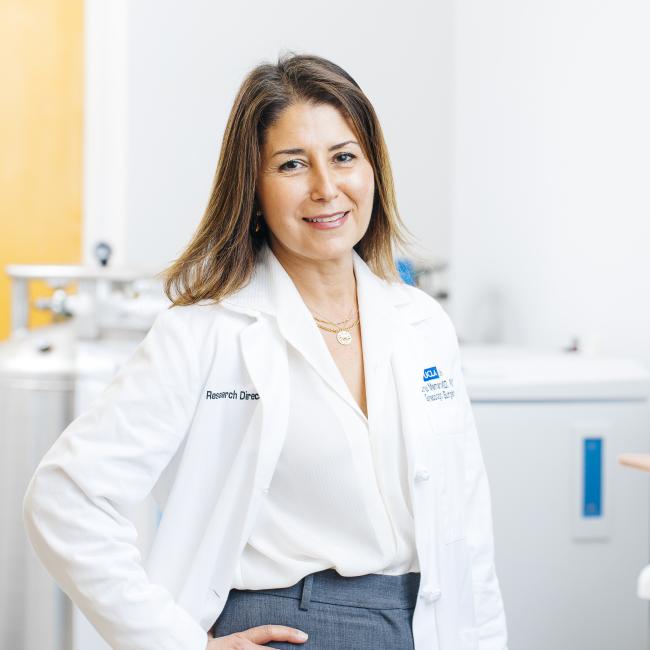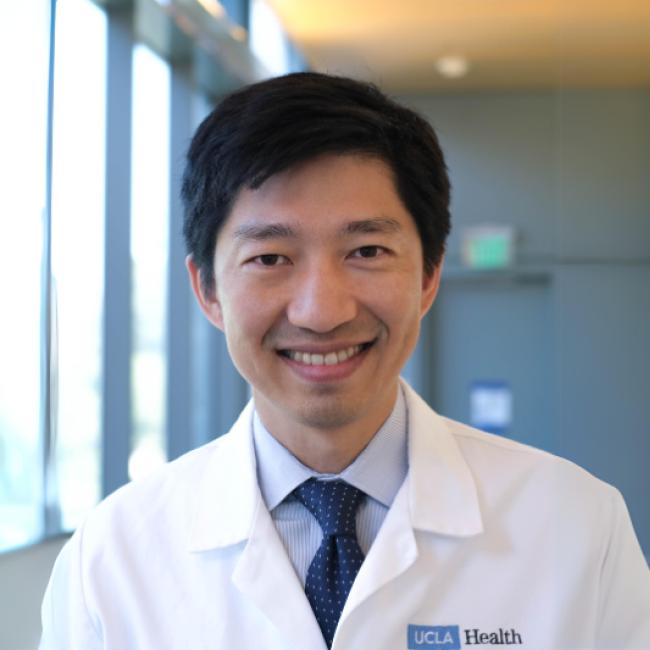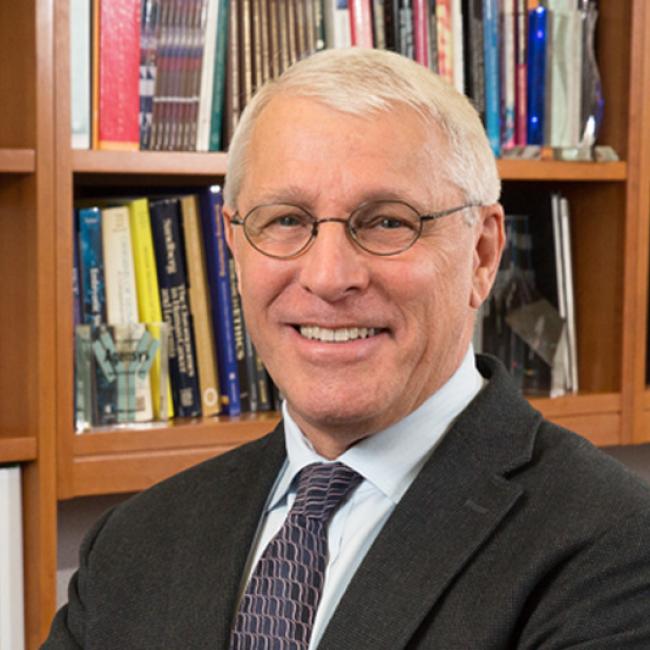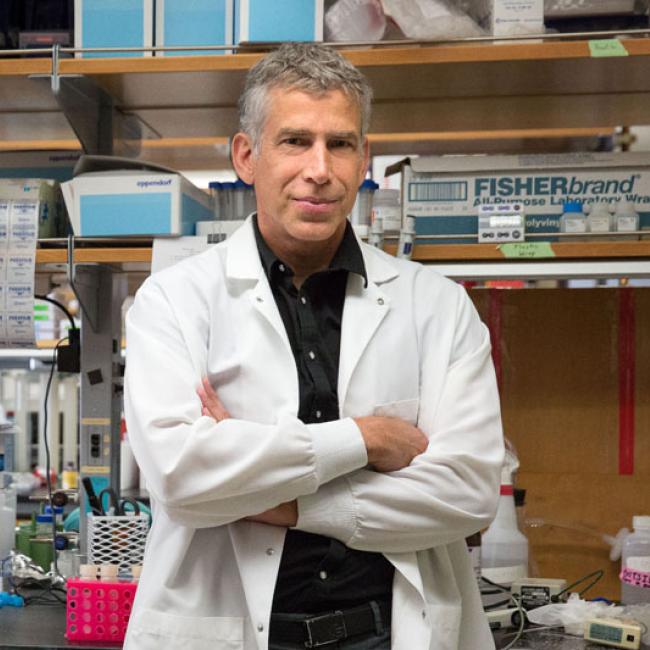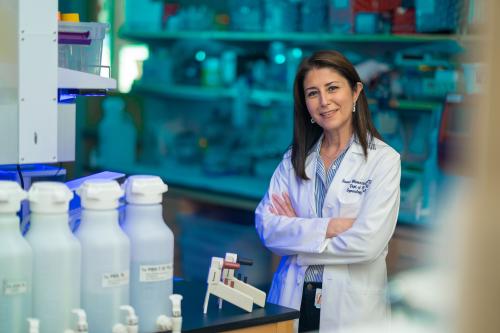
Physician-scientist awarded two grants to develop immune therapies for ovarian cancer
Dr. Sanaz Memarzadeh, professor of obstetrics and gynecology and molecular and medical pharmacology at the David Geffen School of Medicine at UCLA and surgeon-scientist in the UCLA Health Jonsson Comprehensive Cancer Center, has received two grants totaling $4.1 million to develop advanced cell based immune therapies for high-grade serous ovarian cancers that have become resistant to conventional treatments.
High-grade serous ovarian cancer is the most common and most aggressive type of ovarian cancer. Nearly all patients diagnosed with this cancer will relapse after initial treatment. Disease recurrence within six months of platinum-based chemotherapy treatment is categorized as platinum-resistant high-grade serous ovarian cancer, which is highly fatal.
“With the support of these grants, we hope to improve treatment outcomes for patients who have limited treatment options,” said Memarzadeh, who is also director of the G.O. Discovery Lab and a member of the Eli and Edythe Broad Center of Regenerative Medicine and Stem Cell Research at UCLA.
Developing new T-cell receptor therapies
For the first grant, awarded by the National Cancer Institute for $3.4 million, Memarzadeh and a team of researchers from UCLA and the Children’s Hospital of Philadelphia are looking to identify new protein variations in cancer cells caused by RNA dysregulation in platinum-resistant ovarian cancer.
By studying these variations, they hope to identify new targets for immunotherapy, specifically for a type of treatment called adoptive T cell therapy. Adoptive T cell therapy is a type of cell therapy that involves modifying T cells, which is a type of immune cell, to enhance their ability to fight cancer. The investigators hope to engineer T cells with T cell receptors (TCRs) that will specifically recognize and kill tumor cells based on the identified cancer-specific protein variations.
“Adoptive T-cell therapy has demonstrated efficacy in treating certain hematologic malignancies including leukemia and lymphoma,” said Memarzadeh. “We are hopeful that we can discover new antigens and TCRs that can be used to develop effective treatments for platinum-resistant ovarian cancer.”
Along with Memarzadeh, the research team includes professor Yi Xing from the Children’s Hospital of Philadelphia and the University of Pennsylvania; Dr. Christopher Seet, assistant professor of medicine in the division of hematology-oncology at the David Geffen School of Medicine at UCLA; and Dr. Owen Witte, University Professor of microbiology, immunology and molecular genetics at UCLA.
Activating natural killer cells to attack treatment-resistant cancer cells
The second grant, which is a $700,000 award from the United States Department of Veterans Affairs, supports Memarzadeh’s research with a different type of immune cell called natural killer (NK) cells to treat platinum-resistant ovarian cancer.
These resistant cancer cells are often enriched with poorly differentiated stem-like cells called PD-SLCs that harbor unique traits that makes them hard to target with traditional treatments like chemotherapy and cytotoxic T-cells. However, researchers have found that NK cells can successfully attack PD-SLCs. The problem with NK cells is that their numbers may be low, and their function may be defective in many patients, including women diagnosed with ovarian cancer.
To address this issue, a collaborator on the grant Anahid Jewett, professor in the school of Dentistry at UCLA, and her team developed a new method to activate and expand NK cells in large numbers, creating what are called supercharged NK (sNK) cells. These supercharged cells are not only durable but were found to be functionally superior to peripheral blood NK cells.
In this study, the team will test how effective these sNK cells are, both alone and in combination with chemotherapy, in targeting platinum-resistant high-grade serous ovarian cancer. They will also look to identify biomarkers that indicate how well the treatment is working to help predict which patients will respond best to sNK cell therapy and better understand how sNK cells and chemotherapy work together to target and kill chemo-resistant tumor cells.
Also collaborating on this grant is Thomas Graeber, professor of molecular and medical pharmacology at the David Geffen School of Medicine at UCLA; Dr. David Elashoff, professor biostatistics and computational medicine at UCLA; and Dr. Michael Lewis in the department of pathology at the West Los Angeles VA hospital. Both Jewett, Graeber and Elashoff are also members of the UCLA Health Jonsson Comprehensive Cancer Center.
“Through our research efforts we hope to test new treatment approaches for women impacted by high grade serous ovarian cancer while paving the way for hopefully life-saving therapies,” said Memarzadeh.
